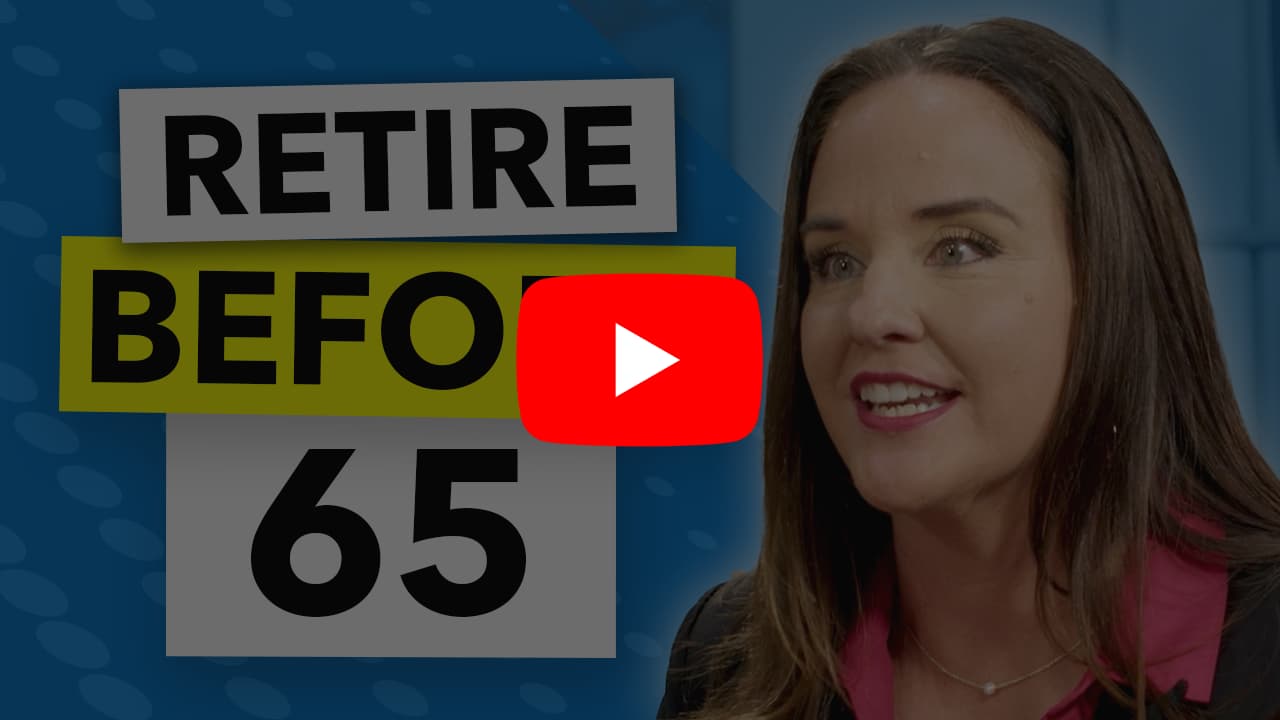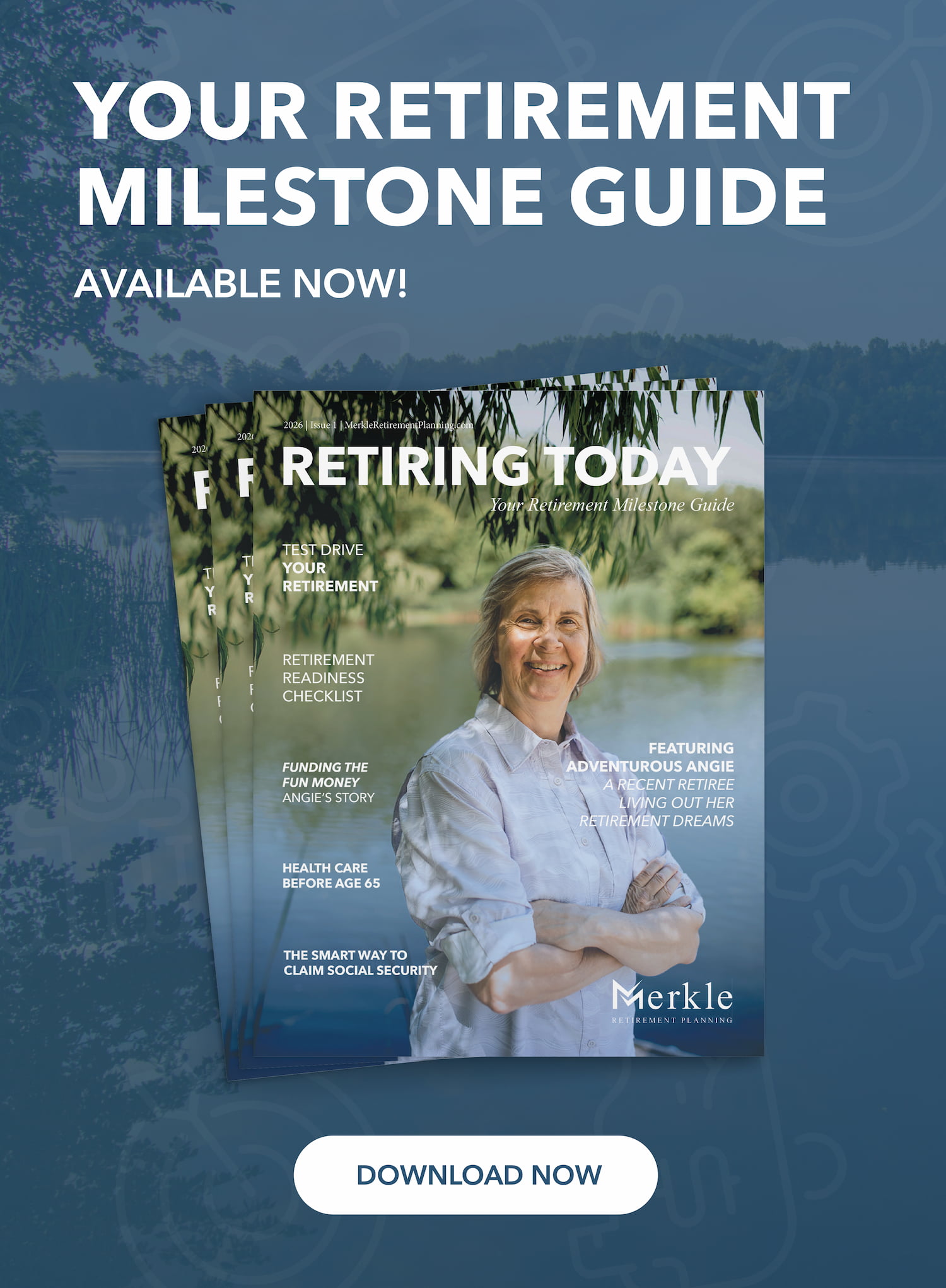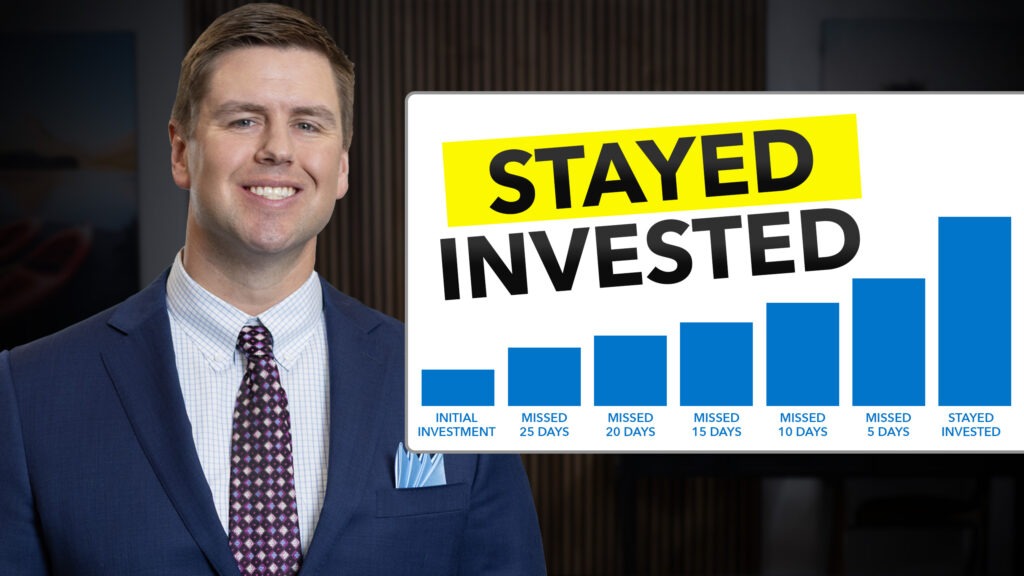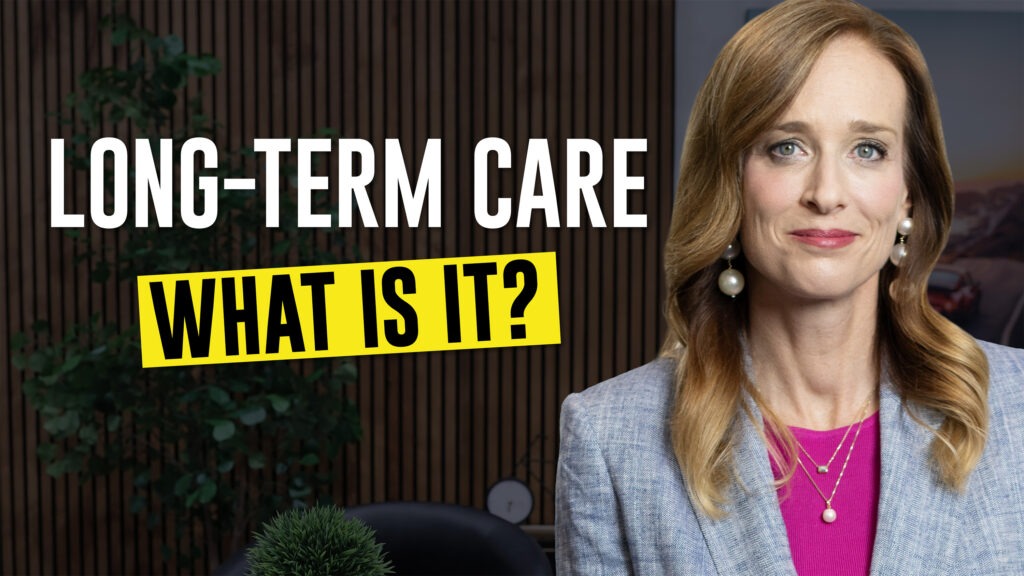Reclaim your Go-Go years!
In this episode of Retiring Today, we’ll be discussing how to rethink retirement and discover strategies for health care, Medicare, and long-term care so you can reclaim your go-go years. Experienced Retirement Planner Loren Merkle and Merkle Retirement Planning Director of Medicare AnnaMarie Morrow cover:
– Reasons why you may not have to work until age 65 (aka Medicare eligibility)
– Options for bridging the gap between employer plans and Medicare
– The importance of reviewing Medicare coverage annually
– Funding options for long-term care, including self-funding, long-term care insurance, investment usage, and hybrid options
–––––––––––––––––––––––––––––––––––––––––––––––––––––––––––––––––––––––––––––––––––––––––––––
Do You Want to Retire Before 65?
TRANSCRIPT
Molly Nelson [00:00:00]:
Do you think you have to work until age 65 because of the high cost of health care? We’ve got some ideas for you to consider right now on Retiring Today. Well, welcome to Retiring Today. I’m here with Loren Merkle and AnnaMarie Morrow. Loren is a CERTIFIED FINANCIAL PLANNERTM, a Certified Financial Fiduciary®, and a Retirement Income Certified Professional®, and AnnaMarie is the Director of Medicare here at Merkle Retirement Planning. Loren, you sit down with people every day. You get the privilege of talking about retirement. And a lot of times, people have it in their mind that they just can’t retire until age 65.
Loren Merkle [00:00:45]:
This is a conversation that happens at least twice a week where people come into the office and they say they want to retire at 65. We talk a little bit more through it. I ask them, I say, how is work going? And a common response is like, oh.
Molly Nelson [00:01:01]:
They’re ready to retire immediately.
Loren Merkle [00:01:03]:
I know that it’s not that they want to work until 65, but they feel like they have to. And a lot of times it’s because of the high cost of health care. So immediately we get to work and we build out their plan. And in many cases, they find out, in fact, they don’t have to work until 65. They can if they choose to, but they can actually retire earlier. And that phenomenon, what we call that, is reclaiming your go-go years. There are three distinct phases of retirement. Their first and favorite phase is the go-go years, where they have more freedom, more time and activity, list of things that they’ve wanted to do, and now they have the time to do it.
Loren Merkle [00:01:40]:
Imagine how impactful that could be to you if you don’t want to work until 65 and you find out, in fact, you don’t have to, and you can reclaim two extra years of your go-go years.
Molly Nelson [00:01:53]:
What good news to deliver to people. This is AnnaMarie Morrow. And AnnaMarie, it’s good for people to know you’re right here on staff. You’re right here at Merkle Retirement Planning, and you work with Loren to kind of help people figure out how they’re going to pay for health care.
AnnaMarie Morrow [00:02:07]:
There is so much power in the type of planning we do, in the holistic retirement planning we do. I sit down with Loren, with our other retirement planners, and we look at those different buckets within retirement, whether it’s the income planning, the tax planning, investment planning, and all of these work together to help guide health care decisions and show how we can implement certain strategies and show less cost for health care so that they can reclaim those earlier years.
Loren Merkle [00:02:34]:
And that’s an important and powerful conversation because one of the most important aspects for somebody who’s on the doorsteps of retiring, you’re a couple of years out, you’re thinking more and more about what you’re going to do when you retire. And then all of a sudden you have a couple of extra years dropped in your lap of free time and ability to spend that time with the grandkids and travel and do all the things that you wanted to do. And the dynamic of your day, the dynamic of your day-to-day changes dramatically as you start to really to envision this retirement that has now become more true than ever.
Molly Nelson [00:03:08]:
This is part of our rethink retirement series. So what we’re trying to help you do is get ready for retirement. It does require a bit of a mindset shift. So we want to talk about where you’re at, and then we want to help you think forward to retirement and what retirement could look like before age 65. So first, let’s talk about where your current mindset could be. Retire at age 65. Loren outlined that for it, you might be thinking you have to set it and forget it when it comes to health care, that once you make those health care decisions, you don’t have to worry about it again. In segment two, we’ll talk about why you need to rethink that.
Molly Nelson [00:03:37]:
And then you might be thinking, I just can’t afford long term care. In segment three, we will talk about some new ways to think about paying for and thinking about long term care in retirement. But first, mindset shift. Number one, rethink retiring before 65.
AnnaMarie Morrow [00:03:51]:
And this is part of that fun conversation that we get to have with the people that we work with, with our clients, with our families, showing them illustrating what they don’t know. They don’t know. So, people expecting to retire at age 65, so they have this seamless transition from employer plan to new health insurance being Medicare. Well, let’s broaden that spectrum. What does rethinking that look like? So now we introduce this gap. Let’s say let’s retire a bit earlier than 65. Well, how are we going to build this bridge to avoid drowning in this water? The first option we’re going to talk about is COBRA. COBRA is a federally mandated program that requires employers to provide a continuation of the employer coverage for a minimum of 18 months.
AnnaMarie Morrow [00:04:40]:
And this coverage is available to you whether it was involuntary or voluntary separation of service. It is also available to any dependent spouses, partners that were also covered on the employer plan. Now, COBRA can have some stigma with it as being so expensive, because basically what happens is you take over 100% of the cost of the monthly premium. So now we have Jill. We’ve introduced this idea to COBRA, to her, where she could have this bridge of coverage for 18 months, which would mean that now Jill is considering retiring at age 63 and a half, reclaiming those 18 months. So now it all comes down to numbers, right? So, we look at her overall plan, and this is the information that we know that while she is working, she is currently paying $100 a month to be on her employer plan. And then she finds out COBRA costs. So, she brings that information in, and to be on COBRA, it will cost her $400 a month, which basically means that her employer was providing $300 to offset that premium while she was working.
AnnaMarie Morrow [00:05:43]:
Now, what is Jill’s other option? We all love to have options out there. Her other option is the marketplace, which is also known as the Affordable Care act, also known as Obamacare. And these are qualified, federally regulated health insurance coverage options available to you on healthcare.gov. And what can determine those monthly premiums is income. So, we look at her income planning, and we see if there are any savings that we can take advantage of on the marketplace. And we were able to implement within her income plan to where she would have a savings on the marketplace, to where her monthly premium would be $450. So, knowing these numbers, we were able to put together the cost. If she were to retire 18 months earlier than she originally expected, the total would be $5,400 in monthly premium so that she can reclaim those retirement years.
AnnaMarie Morrow [00:06:37]:
So, all Jill needs to find out now is, is $5,400 worth it to her to retire earlier?
Loren Merkle [00:06:43]:
AnnaMarie, there are a whole bunch of Jill’s jumping off the couch right now, just cheering because you put some numbers behind this decision, which is so powerful and necessary for everybody to do. If you want to retire at 65, you’re 63 years old. Put some numbers around that decision. And what we just learned from Jill is $5,400 would be that cost to reclaim an extra 18 months of her go-go years, 18 months extra with the grandkids and traveling and doing those types of things that she’s always dreamt about. But wait, what if you’re not Jill, and instead of $5,400, it’s $5,000 or it’s $50,000? That’s a number that you can use to help identify what is most important to you in this decision. And many people we talk about, if that number is even $50,000. And they can look at age 90 and say that I’m going to have $50,000 less or $60,000 less than if I would have worked till 65. They’re looking at us and saying, I’m gone.
Loren Merkle [00:07:48]:
I’m going to reclaim those 18 months, those two years of the go-go years, because at age 90, it’s not going to be that important to me.
Molly Nelson [00:07:54]:
Yeah. That money is just not – maybe as valuable to them when they’re 90.
Loren Merkle [00:07:59]:
That’s right. Because what is most valuable to people who are on the doorsteps of retirement is the free time, the time to do what you want to do, when you want to do it. Take control over your freedom, take control over your time. And that is what reclaiming those go-go years does for you.
Molly Nelson [00:08:15]:
And I think that Jill example was really great. It was easy to digest. But we do want to make sure people understand there’s a lot of other things that you have to consider before you can come to what your numbers are and what your savings are.
AnnaMarie Morrow [00:08:25]:
There really are, because numbers are fine to look at, but there are other factors that you want to look at also. You want to consider PPO HMO networks, because basically that means if you’re on an HMO plan, if you go out of service of network, then you’re liable for 100% of the cost. So that’s one of the things that go into it. Also, out of pocket maxes copays. So, all of these contribute to guiding them to the decision, which is why it’s great to at least have two options outside of the employer plan because you can really see where you come out ahead.
Molly Nelson [00:07:47]:
So, if you jumped off the couch while AnnaMarie Morrow was speaking, I’ve got a way that you can jump right on the phone and talk directly with AnnaMarie Morrow or one of the retirement planners here at Merkle Retirement Planning. You can go to MerkleRetire.com right now and schedule a 15-Minute Retirement Check-Up Call if you want to speak directly with AnnaMarie. There’s a little notes area there. Just type in health care or Medicare. We’ll figure it out. We’ll get you talking with AnnaMarie, or we’ll get you to talk to one of our retirement planners about what’s on your mind. Two more ways to rethink retirement, next.
Voice Over [00:09:38]:
Do you wonder if you have enough saved for retirement? Will your money last as long as you do? Will taxes, health care costs and inflation derail your retirement? Get answers schedule a 15 Minute Retirement Check-Up Call today. We can cover a lot in 15 minutes, including strategies you can implement now to start your retirement journey. Schedule a call at MerkleRetire.com. The first step to a confident retirement starts with a simple phone call.
Voice Over [00:10:09]:
Do I have enough saved for retirement? When should I take Social Security? Which Medicare option is best? How do I plan for inflation? Sometimes the road to retirement starts with more questions than answers. We’re here to help. Join us for our upcoming Journey to Retirement workshop. Get answers and start your retirement journey with confidence. Our online workshop includes information on Secure Act 2.0 and changing retirement rules. Visit RetireWithMerkle.com to register for an upcoming workshop. Your retirement journey starts now.
Bridging the Gap Between Medicare and Your Employer Plan
Molly Nelson [00:10:50]:
Welcome back to Retiring Today. I’m here with Loren Merkle and AnnaMarie Morrow. And now we’re doing a little bit of a shift. So, we talked about bridging the gap between Medicare and your employer plan or COBRA. Now we’re going to if you’re on Medicare, you kind of have to rethink things again, this retirement thing, there’s a lot of rethinking to it. And AnnaMarie, if it comes to Medicare, a lot of people get one idea in their mind about Medicare, but you soon teach them that’s not quite the way to think about it.
AnnaMarie Morrow [00:11:13]:
When people are first introduced to turning age 65 and all the mail they’re getting, I mean, they just hope it’s just once and we’re done. Right. But no, I get the joy of telling them that this happens every year, all the mail, all the information, because it is important to make sure that you’re still set up successfully for the following year. Because even if your medications haven’t changed, your health care needs haven’t changed, these plans can and typically do change how they cover your coverage. So that’s why we have this opportunity every year from October 15 to December 7 to review your plan and your needs and make sure that you are set up for success the following year.
Molly Nelson [00:11:49]:
Okay, so you’re telling me when it comes to Medicare, I can’t set it and then forget about it?
AnnaMarie Morrow [00:11:53]:
No. You can with Parts A and B, and that is the hardest part to get moving forward. When you first either retire or turn age 65, that is the longest part of the enrollment process. But every year, when it comes to supplemental and drug coverage, we do need to do that review to make sure your coverage needs are met.
Loren Merkle [00:12:10]:
And those changes can feel daunting. And there’s a lot that goes into the changes and all the information of the different coverages. But I think that’s actually a good thing. The confusion and all the options that you have, if you use that to your advantage and you understand the different options and how they apply to you and your situation, then you can have even better coverage than what you would have if maybe there was one option or two or even just three options. So, I think all these options, if you use it to your advantage, can be a really good thing to make sure you have the best care, not only at age 65 when you first elect, but at age 66 and 75 and 85 going further down the road.
Molly Nelson [00:12:50]:
And quite frankly, doing an assessment of this each year can save you a lot of money or even save you a lot of heartache?
AnnaMarie Morrow [00:12:57]:
It can, because one of the things to consider, once you’re on Medicare and you’ve chosen your supplement, your medical coverage, whether you’ve gone the traditional route or an advantage plan, if you’re happy with that, most people are. They’re not interested in changing that year to year. But it does come down to medications. And these are the most heartbreaking phone calls I get from people who are new to this, who haven’t been looking into this. Every year they get their 90-day refill in November and they’re paying a $12 copay, and they didn’t know to look into any changes needing to be met for the following year. And 90 days later into the new year, they get their refill thousands of dollars. They’re not paying that. They’re like, what’s going on? But for example, Meloxicam, I think we’re going to pull that up here to show you this example is Meloxicam.
AnnaMarie Morrow [00:13:44]:
Nothing against this medication. I mean, this is pretty standard with generics, but it comes down to how each drug card will cover a medication. So, one year, Meloxicam, at an in-network pharmacy, they had that copay of $12. And then moving into the next year, I pulled this one up with someone who came in to meet and I showed them, I pulled it up on their pharmacy. Turns out the pharmacy was no longer covered, contracted with that drug card. And so, it pulls up this one, $100 copay. We’re like, okay, we need to make a change to your drug card. And their mind was blown.
AnnaMarie Morrow [00:14:15]:
They’re like, what? How is this a thing? It’s a generic medication. It all comes down to network coverage, coverage on different tiers for medications. And this is what can be so overwhelming going into every year with Medicare. So, we make this a part of the plan to make sure you’re set up for success every year.
Molly Nelson [00:14:33]:
And I want to make sure this is crystal clear to people. So this example, you were working with someone, an individual who was on this particular drug, and they were paying $12, and then it was time for open enrollment, and you were like, okay, if you stay where you’re at for your prescription coverage, you’ll pay $1,117, but if you move to a different prescription coverage, here’s what you’ll pay. And then you do all of that analysis for them?
AnnaMarie Morrow [00:14:54]:
Yeah, it could either be moving to a new drug card or changing pharmacies. And yes, we illustrate all of that. There’s a compare and contrast tool. It’s actually on Medicare.gov that we use to show you what has your coverage available and what doesn’t. And that’s our opportunity to make changes.
Loren Merkle [00:15:09]:
And I think that’s an important highlight to note because many people don’t realize probably that that is one of the services that you provide is you will look at their individual prescriptions and look at the different coverages that are available, not only when you’re 65 but later down the road as well to match those up to make sure that the drugs, which can be some of the most expensive aspects of health care, are covered the best way possible. With even considering all the changes that take place each and every year.
Molly Nelson [00:15:37]:
And as we talk about rethinking retirement, rethinking health care, this is probably a big mindset shift, at least I think for a lot of people, and I can only use my own experience. When you’re on a health care plan, an employee health care plan, an employee prescription plan, I don’t know that each year you’re really good about checking to see if your pharmacy is still included. So, this is a big mindset shift. Yeah.
AnnaMarie Morrow [00:15:59]:
Employer plans operate on a very different platform basis. Medicare is its own beast. It’s called the maze of Medicare for very good reason. You can get lost. And this is where we can really just streamline the information that applies to you when you enter this phase of retirement.
Molly Nelson [00:16:17]:
And I feel like Medicare isn’t the only thing you have to rethink in retirement. That’s what we’re focusing on today is Medicare and health care. But, Loren, you’ve helped thousands, maybe hundreds for sure. People retire, and there’s a lot more that they have to rethink.
Loren Merkle [00:16:29]:
They have to think every aspect of retiring. And there’s a lot of things that you encounter in the working years that you never have to encounter until you actually go to retire. Medicare is just one of those aspects you need to think about what happens, what happens to everything that’s left over when you pass. How does it go to your spouse if you’re married? How does it go to your loved ones and charities in the most efficient way possible? Think about where are you going to deliver income from. Not long ago, I had a conversation with somebody and he’s always done his investments in his planning himself. And he said, I’m going to retire in two years. And I’m starting to realize that taking money out to fuel the lifestyle that I want to have is way different than putting money in. Putting money in was much easier.
Loren Merkle [00:17:13]:
So you have to think about all these things that you’ve never really had to think about or worry about before. And that’s why we have the six pillars of the retirement plan that make sure all of these things do not become surprises, but become advantageous to you to help you on your mission to retire.
Molly Nelson [00:17:29]:
Well, if you want to dive deeper into any of the things you just heard Loren talk about, any of the things that you have to rethink in retirement, we’ve got a great resource for you. It’s our rethink retirement workshop series. There is a website on your tv right now. It’s RethinkRetirementSeries.com. You can go there and you can dive deeper into investments, income, legacy planning and taxes and see why it is a big mindset shift in retirement. We’re going to talk about one more mindset shift. It’s long term care. Next.
Voice Over [00:18:02]:
You do I have enough saved for retirement? When should I take Social Security? Which Medicare option is best? How do I plan for inflation? Sometimes the road to retirement starts with more questions than answers. We’re here to help. Join us for our upcoming Journey to Retirement workshop. Get answers and start your retirement journey with confidence. Our online workshop includes information on Secure Act 2.0 and changing retirement rules. Visit RetireWithMerkle.com to register for an upcoming workshop. Your retirement journey starts now.
Voice Over [00:18:34]:
Anytime I have even the smallest question about my accounts or what effect the latest tax law might have on my situation. The Merkle Retirement Planning team is always there and quick to help. I’m so glad they treat you like, well, like family. I’m so happy to have such an excellent team working for my future and ensuring I do the best to achieve my financial goals.
Voice Over [00:18:58]:
Merkle Retirement Planning your retirement starts here.
Planning for Long Term Care
Molly Nelson [00:19:09]:
Welcome back to Retiring Today I’m here with Loren Merkle and AnnaMarie Morrow and we are challenging you to rethink retirement. So, one thing that people have to rethink is long term care. It feels very expensive, but we want to talk about rethinking long term care. It’s one thing for us to tell people to rethink it and to tell them that they should develop a plan that they can afford it, but I think the stats could really help people rethink retirement.
AnnaMarie Morrow [00:19:30]:
Once you turn age 65, you have a 70% chance of at some point needing long term care throughout the duration of your lifetime. That is more than 50%. That is more than half the people watching this show who are over the age of 65 will need long term care.
Loren Merkle [00:19:45]:
Yeah so, the vast majority of people are going to need long term care, but for how long? Women on average need long term care for 3.7 years and men 2.2. So, that can be an expensive venture for that 2 to almost 4 years.
AnnaMarie Morrow [00:20:10]:
But doesn’t Medicare cover some of this? When I cover summary of benefits, whether it’s on a traditional supplement or an advantage plan, it varies. On traditional supplement, the summary benefits you have inpatient hospital coverage, skilled nursing, up until day 100. And then as I go through that, the next question I receive is, well, what happens after day 100? Not Medicare. That is where long term care takes over.
Molly Nelson [00:20:34]:
And after day 100, you’re looking at the full cost of some of this. So, we pulled the numbers because it is expensive. We’re not going to sugarcoat that part of it. So if you look at 2023 assisted living, about $4,500 a month, a nursing home, private room, $9,000 a month. That’s if you’re today, let’s say in 20 years, you need the long term care. With inflation, health care inflation is higher than the rate of average inflation. You’re looking at about $8,600 a month for assisted living, or up to $17,000 a month for a private nursing home. In 20 years, a room of your own.
Loren Merkle [00:21:08]:
So maybe $10,000 to $17,000 a month for 3.7 or 2.2 years. And that’s if just one of you needs it. If you’re married and both of you need it for that period of time, we’re talking about a really daunting scenario, and this is why people are so frightened about covering long term care, is how are you going to pay for it? Are you going to be able to afford it? And does it impact your legacy ambitions of transitioning whatever’s left over to the loved ones and charities as well. That’s a big concern for many people.
Molly Nelson [00:21:35]:
Okay, so we’re challenging people to rethink retirement. So, we want to give you some ways to think about funding long term care. Loren, you’ve got four options for people to consider.
Loren Merkle [00:21:44]:
Everybody has long term care risk. Now. It’s about, how do you offset that risk? Which one is the best option for you? The one option that almost everybody needs to consider is the self-funding option, which means you’re just paying out of your pocket. Now, many people will default to that because they don’t make a choice of some other way to offset that cost. But if you’re making that choice to self-fund, we want that to be your best option. What that means is you’re 65 years old, 75 years old, you need $9,000 a month for long term care. You will pay for that out of your pocket. Another option is the more traditional option, which is long term care insurance.
Loren Merkle [00:22:26]:
And this is the option that maybe your parents had, because 10, 15, 20 years ago, this was one of the only options that you had to offset long term care costs. If you need long term care, the insurance company is going to pay for some or all of that based on the insurance policy they selected. The problem with that, and you’re discovering this as you’re looking at those options, is that insurance policy that your parents had is no longer available. The options available to you provide less coverage, typically, and cost way more than what people 20 years ago could pay for that. So many people are saying traditional long term care just does not work for them. Well, then another way is you can use your investments. And the most common way to use your investments for long term care would be in the form of a lifetime annuity product, which means, let’s say, that lifetime annuity is paying you $3,000 a month for the rest of your life. If you need long term care, or in many cases, if you just lose two of the six daily lifetime activities.
Loren Merkle [00:23:29]:
So, you don’t even have to be in a nursing care facility, you can actually be at home, lose two of the six, then that income will increase. In some cases, it’ll even double. So, instead of $3,000 a month, maybe $6,000 a month for up to five years to help offset that cost, that can be beneficial. And the benefit of something like that is you don’t have the long term care insurance premiums. It’s just the investments that you’re using that you’ve already saved to help offset some of that cost. Option number four would be what we call a hybrid option, which is essentially a life insurance policy that has a long term care rider attached to it. So, as an example, you buy a life insurance policy, it’s $200,000, a death benefit, which means you pass away, you never need long term care, $200,000 goes tax free to your beneficiaries. However, let’s say you need long term care before you pass away. Then, in many cases, that life insurance policy will allow you to advance 20% of the death benefit to help offset the cost of long term care. So, in that case, $40,000 a year to help offset the cost. Now, I know a lot of you might be thinking, well, $40,000 a year, based on what Molly just told us, that’s not going to help cover it. That’s not going to cover it. Well, the benefit is you can control that death benefit. So instead of $200,000 of death benefit, let’s say it’s a million.
Loren Merkle [00:24:50]:
Well, now you have 20% of a million, $200,000 that you can use. And for many people, that’s going to pay for all or most of that long term care policy. So, the key is that you need to investigate all the options available to you now, because there’s way more options available to you to help offset that cost than there ever has been before.
Molly Nelson [00:25:09]:
And this show is part of our rethink retirement series. So, what we want to help you do is rethink retirement so that you’re in a better position when you do retire. So today, we just focus on health care and Medicare. But the series dives in deeper on a lot of topics.
AnnaMarie Morrow [00:25:23]:
There are building bricks for your retirement to build that confidence. And that’s what these workshops are all about, is building that confidence, giving you the information that you need to have that confidence, knowing what to look for in your retirement plan. It’s a great position to start.
Molly Nelson [00:25:39]:
Loren, that legacy Rethink Retirement Series workshop has been very popular.
Loren Merkle [00:25:43]:
It has been popular because it reveals, oftentimes there’s documents that go a part of a legacy plan that people think will accomplish what they’re trying to accomplish, but don’t really. One example is the last will. It’s the most common type of legacy document. People think it does one thing, but they find out that it doesn’t do everything they want to. We cover that in that legacy workshop. So, you know what types of documents you need to provide the legacy that you’re dreaming of doing.
Molly Nelson [00:26:13]:
And at the end of the day, whether it’s planning for long term care, whether it’s legacy planning, investments or taxes, all of this doing a little bit of work right now is designed to really let you sit back and enjoy retirement and not have to think about what if I need long term care? Or what if I don’t have my will set up quite right.
AnnaMarie Morrow [00:26:30]:
One of the common phrases we always hear is, I didn’t know. I didn’t know that. I didn’t know what information was out there. Retirement isn’t just based on investments and assets. There is this huge conglomerate of decisions and strategies and how things work together to where you don’t have to make those silo decisions. They all work together to give you that confidence moving forward. There’s a lot of value in that, in just growing and learning as you go through these workshops.
Loren Merkle [00:26:56]:
After 40 years of work, you want retirement to be comfortable, calming and enjoyable. But what a lot of people find once they make that transition is there’s confusion because of the complexity. You want to turn that confusion and complexity into confidence so you can have the retirement that you want to have.
Molly Nelson [00:27:13]:
Check out our Rethink Retirement Series at RethinkRetirementSeries.com this has been Retiring Today. Thanks for watching.
Voice Over [00:27:27]:
Do I have enough saved for retirement? When should I take Social Security? Which Medicare option is best? How do I plan for inflation? Sometimes the road to retirement starts with more questions than answers. We’re here to help. Join us for our upcoming Journey to Retirement workshop. Get answers and start your retirement journey with confidence. Our online workshop includes information on Secure Act 2.0 and changing retirement rules. Visit RetireWithMerkle.com to register for an upcoming workshop. Your retirement journey starts here.
–––
We are an independent financial services firm helping individuals create retirement strategies using a variety of investment and insurance products to custom suit their needs and objectives. The content and examples shared are for informational purposes only and should not be construed as investment advice or serve as the sole basis for making financial decisions. Individuals are encouraged to consult with a qualified professional before making any decisions about their personal financial situation. Our firm is not permitted to offer legal advice. Investment Advisory Services offered through Elite Retirement Planning, LLC. Insurance Services offered through MRP Insurance, LLC.










